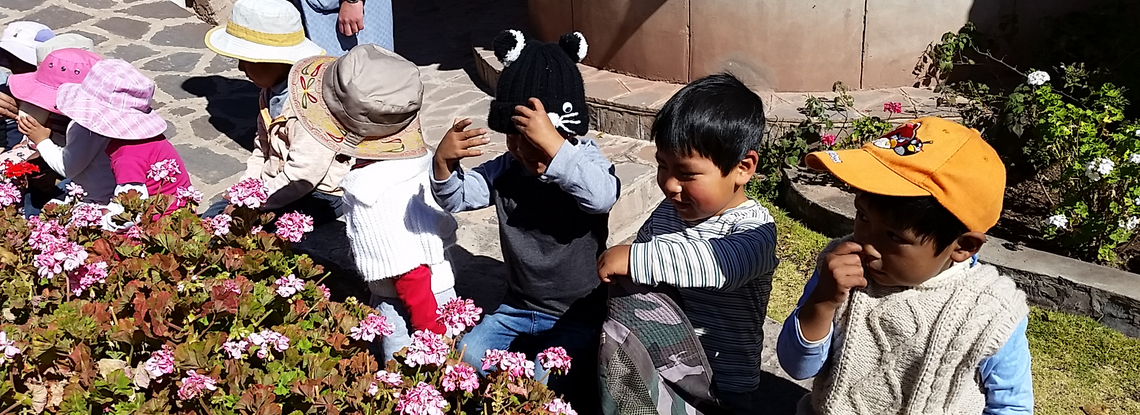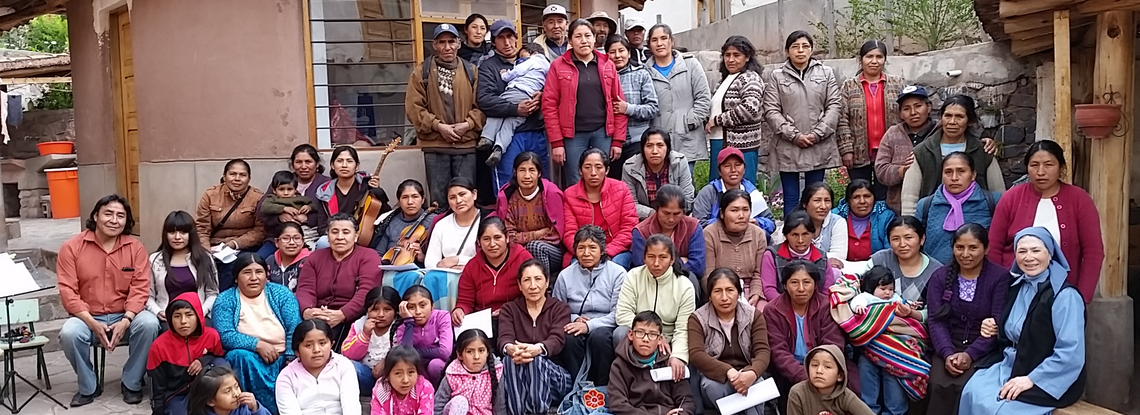Dolls against poverty
Peru: In Andahuaylillas, a small village south of Cuzco, the Q’ewar social project was founded in 2002, in order to stop people from migrating to the slums of big cities. The initiative started with training a handful of very poor women, in making dolls from natural materials and selling them. Now there are around 100 mothers earning a salary, who experience themselves as competent craftsmen. In doing so, they develop self-confidence and take responsibility. Furthermore Q’ewar provides advice in raising children, nutrition and hygiene as an important contribution to the population’s health and education.


Q’ewar is an antidote to the common social ailments of extreme poverty, alcoholism, and malnutrition that plague the small towns and villages in the Province of Quispicanchi, Peru. In this harsh survival culture, high in the Andes Mountains 12,000 feet above sea level, families often live in small, windowless, smoke-filled rooms with earthen floors and walls of mud and adobe – rooms that serve as bedroom, kitchen, and yard for the animals.
Q'ewar primarily serves as a source of job creation for poor women. A married couple founded the initiative and established a puppet workshop thereby teaching local women how to make Waldorf-inspired dolls. Those women were single mothers or homeless women with no family support or women who had suffered domestic violence. The project developed into a therapeutic process that originated in those beautiful Peruvian dolls dressed in the typical fashion of the country. For most of these women, this was the first opportunity in their lives, to learn new skills and express their very own creativity, which would help them earn money to support their families.
The project is engaged in creating an atmosphere, which fosters self-esteem, personal growth and a way to gain economic independence in a respectful working environment. Q’ewar produces about 2000 Waldorf dolls per year. Furthermore felt animals are made in another workshop and garments woven in a weaving mill. The goods are sold in a shop in the village center, or exported to foreign countries (USA, Europe, Australia ...).
While the doll makers are working, their children attend the Waldorf-inspired kindergarten “Wawa Munakuy”. This means “for the love of children” in the indigenous Quechua language. In the afternoon even more children and adolescents attend the afternoon care. There, the children engage in craft activities, they play music, paint, bake bread and benefit from language lessons. In addition they receive help with their homework. All workers receive a fair wage that gives them some financial independence. In addition, they and their children receive a hot meal on a daily basis and one month paid vacation.
